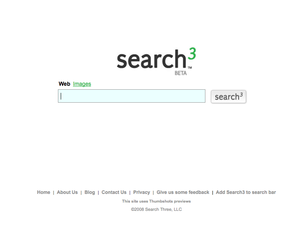Three Tips Plus One On Creating Credible Content Online
By Jaco Grobbelaar on Tue, Jul 26, 2011 @ 11:29 AM

When you are writing content for your business blog, do you know the basic rules for encouraging people to read and believe what you say?
In a recent Orange Soda blog by Erika Potter, as discussed in the July 25, 2011 MarketingProfs article “Three Tips for Creating Credible Online Content”, Potter says that content matters because it creates credibility. “Without credibility, your chance of converting viewers into customers goes downhill fast. It’s vital that visitors to your site see your online business as a trusted resource,” she said.
Potter mentions three rules on the surface of your writing that will make the content credible. Before I tell you about those, there is a rule number one that is not in the article.
Be sure that what you write about is the truth, that all facts can be checked and that any editorializing is clearly that. Prospective clients do not like to be scammed. If there is a free version and a pro version that costs, be sure to mention both upfront. Don’t promise more than you can deliver or something other than what you can deliver. If you are offering information, be sure that it is something that answers prospective clients’ questions.
Now here is Potter’s invaluable advice.
Check—and double check—your spelling and grammar. If you want people to believe what you are saying, be sure you say it correctly. You can’t depend solely on spell check either. If you are writing about a particular stove, spell check will read “over” as acceptable as the correct word “oven”. Grammar, too, can set off warning bells for clients. For example in the sentence about the stove, I used the newer style for quoting a word then ending the sentence using the closing quote mark then a period. Some people might not know that this is a “new” acceptable form of the grammar rule. Be careful when using something new.
Keep it short and sweet. No one is willing to spend a lot of time reading long sentences inside of long paragraphs online. Too much information can actually work against you because people don’t read longwinded articles. If you have to write large chunks of copy, start by getting to the point. Then break up large paragraphs using headlines and bullet points. “If you choose to create pages with an extensive amount of content,” notes Potter, “just make sure it’s relevant.”
Never use attention-grabbing special effects. You can emphasize occasional words and phrases in bold or italics, but people get annoyed with copy full of exclamation points, all caps, unnecessary capitalization or bright colors. All these things will distract your readers from the message. If you feel like something is very important, redo the text to place the important information at the top of the page or paragraph.
MarketingProfs always ends these articles with The Point: Good online writing should be clear, sharp and brief. Your presentation matters as much as what you say; don’t undo your hard work with easily correctable errors.
See http://www.marketingprofs.com/short-articles/2341/three-tips-for-creating-credible-online-content?adref=nlt072611.
Related articles
- Speling misteaks mattter (ztrek.blogspot.com)
- Why Spelling and Grammar Matter in Marketing (hubspot.com)
Share this
Previous story
← Answers about Blogging for BusinessYou May Also Like
These Related Stories
How to Create a Great Call-to-Action


How to Create a Great Call-to-Action
Tue, Aug 09, 2011 @ 11:39 PM
3
min read
Unlocking Keywords


Unlocking Keywords
Thu, Sep 15, 2011 @ 06:43 PM
4
min read
The New Facebook Marketing


The New Facebook Marketing
Tue, Dec 06, 2011 @ 05:58 PM
3
min read
.png?width=302&height=75&name=BVM%20Logo%20-%20transparent%20(1).png)



No Comments Yet
Let us know what you think